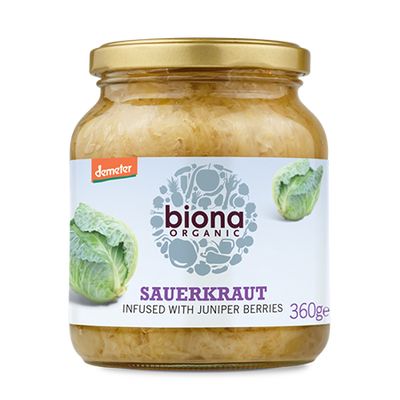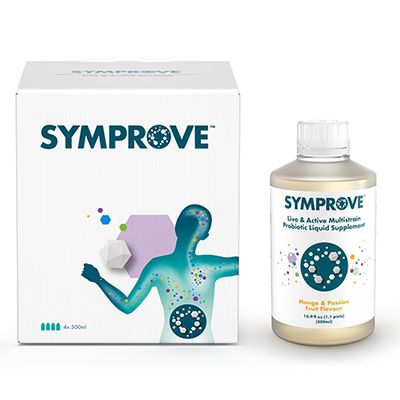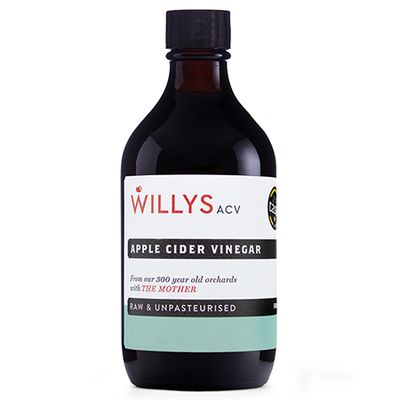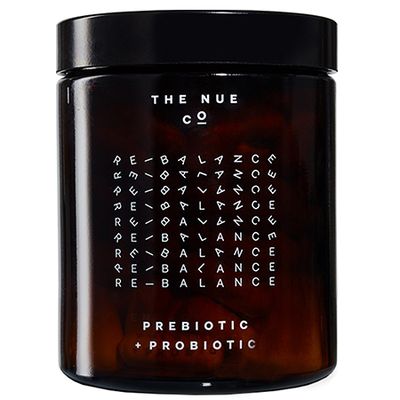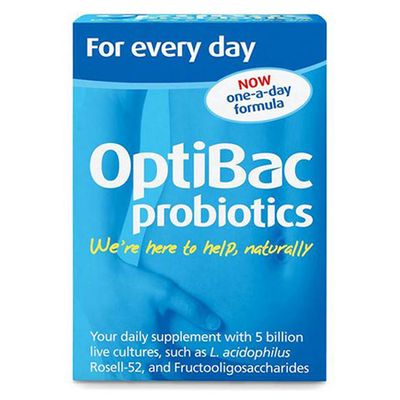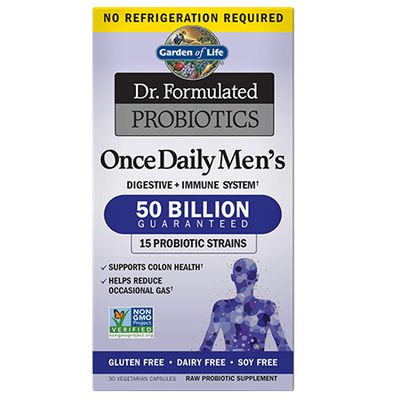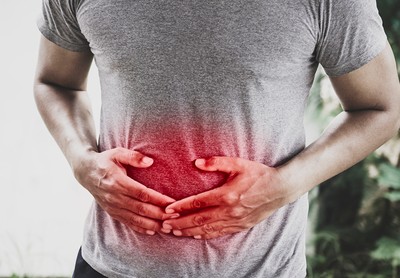
10 Ways To Improve Your Gut Health
Understand Its Role
“Very few of us actually know what ‘the gut’ is. Most of us assume it’s just our stomach, but it’s so much more than that. You need to look after your gut just like you would your heart – in fact, 40% of us have a digestive issue at any one time, and 35-45% of irritable bowel syndrome cases are in men. Moreover, our guts are linked to so much, from how well you metabolise food to mental health and immunity. Around 70% of your immune system lies in your gut. Major changes to your gut microbes – whether through diet, lifestyle, stress or even medication – can send your immune system into overdrive, causing inflammation and long-term consequences, from mental health conditions to an increased risk of diabetes.”
Ditch Processed Foods
“Gut health is about what positives you can add or swap in, not what you need to restrict. Having said that, ultra-processed foods need to go, as they contain things like emulsifiers and preservatives that stifle the gut’s good bacteria. When you think about it, it makes sense that if something is extending a food’s shelf life by months, it probably isn’t doing great things for your body. Try to cut out processed foods as much as you can, and make some smart swaps so you don’t feel like you’re missing out.”

Eat More Fibre
“Fibre is the unsung hero of nutrition and 90% of us aren’t getting enough of it – it’s not all about prune juice and cereals. Fibre bulks out and softens your stool by retaining water, supporting gut transit time and reducing the risk of constipation; it also slows the absorption of sugars in carbohydrates, which can support energy levels. Certain types of fibre can also be fermented by your gut microbes, which produce short chain fatty acids (SCFAs). SCFAs provide energy for your gut. If you don’t think you’re getting enough fibre, increase the amount you consume by around 5g a day for a week and then up it again, making sure you’re drinking plenty of water.”
Aim For Variety
“We have trillions of bacteria (over a thousand different species) in our guts and they all thrive on different foods, so variety is key to making sure you keep them all happy. We need to start thinking beyond just fruit and veg – current research shows we need closer to 30 different types of plant-based foods every week, including fruit and veg as well as wholegrains, pulses, legumes, nuts and seeds. This may sound like a lot, but simple hacks like trying one new plant-based recipe each week; ordering a veg box; trying a recipe kit; or adding seeds and nuts to salads and soups can all help. Even something as simple as buying a mixed bag of salad instead of one variety makes a difference. If you’re lacking in inspiration when it comes to veg, olive oil, salt and the oven are your friends.”
Fermented Foods Can Help
“We have to be incredibly careful when discussing the benefits of fermented foods as this is a heavily regulated area meaning any health benefit relating to a product must go through a rigorous process of approval by the European Food Standards Agency. There have been very few clinical trials around the health benefits of fermented foods mainly because they’re exceptional costly and very unstable, but also because it is difficult to say that the ‘live’ component is the cause of said health benefits. However, there is some interesting research on how fermentation and the presence of beneficial bacteria can have a positive effect on our gut microbes. For example, fermentation helps break down the nutrients in food, making them easier to digest. Live yoghurt, sauerkraut and kombucha are all examples of fermented foods.”
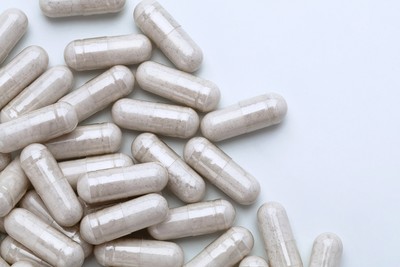
Supplement Wisely
“You may have heard about probiotics, which are essentially live microorganisms. However, not all probiotics are created equal. Different strains can have different effects, and some might have no effect at all – it all depends on the individual. We’d advise focusing on the different strains of bacteria in a probiotic and researching what that particular strain is good for. For example, there are certain strains that have gone through clinical trials for traveller’s diarrhoea. Steer clear of anything promising to ‘cure’ or ‘treat’ – probiotics are not medicines, not yet at least.”
Know The Mental Health Link
“There is a neural and physical connection that runs from your brain all the way through to your gut – this is often referred to as the gut-brain axis. The bacteria in your gut have the power to affect your mental health for better and for worse. For example, 95% of your serotonin, your happy hormone, is produced in the gut. If you have low serotonin levels, you may encounter food cravings, low mood and even depression. Similarly, if your gut microbiota is disrupted, it can inhibit the cells that make dopamine. Low levels of dopamine are associated with low motivation, mood swings and difficulty concentrating. We also know from several studies that those with anxiety and depression tend to have a less diverse gut microbiota, meaning fewer species of bacteria. The research is still very new in this area and, of course, mental health is multifactorial and incredibly complex, but it’s encouraging to know that nutrition could be another tool in our armoury.”
Stay Active
“Exercise isn’t just good for your body and mind but for your gut microbes too. In general, exercise increases your microbial diversity, though this depends on the type of exercise and the intensity. Most of the research points at cardio being beneficial for your gut microbes, but that isn’t to say strength training isn’t as important – it is just that the information is lacking. No matter what form of exercise, if you are working too hard without enough rest, it is going to cause your body stress. If that continues for a prolonged period of time, this can have a negative effect on your gut, so remember to factor in rest days.”
Stress Less
“Stress has a huge impact on your gut’s physical function and the balance of microbes within it. Learning how to manage stress and being aware of your stress levels when you are eating can have a positive impact on your gut. Think about getting out of the ‘fight or flight’ mode (sympathetic nervous system) and into ‘rest and digest’ to best look after your gut. Have a de-stress toolbox at hand. Whether you go for yoga, meditation, dancing, chatting to a friend or just some deep breathing – do what works for you.”
Hit The Pillow
“Your gut microbes work on a day and night cycle, with some being nocturnal and others going about their business in the day. If you have irregular sleep patterns, this can really confuse your microbes and potentially throw them off balance. One way of establishing a good routine is to practise good sleep hygiene: expose yourself to daylight first thing in the morning; go to bed and wake up at the same time every day; sleep in a cool, dark room; and try not to eat just before you go to bed.”
Support your gut health with SLMan's pick of the best probiotics and bacteria-packed products…
Visit TheGutStuff.com
*Features published by SLMan are not intended to treat, diagnose, cure or prevent any disease. Always seek the advice of your GP or another qualified healthcare provider for any questions you have regarding a medical condition, and before undertaking any diet, exercise or other health-related programmes.
DISCLAIMER: We endeavour to always credit the correct original source of every image we use. If you think a credit may be incorrect, please contact us at [email protected].
